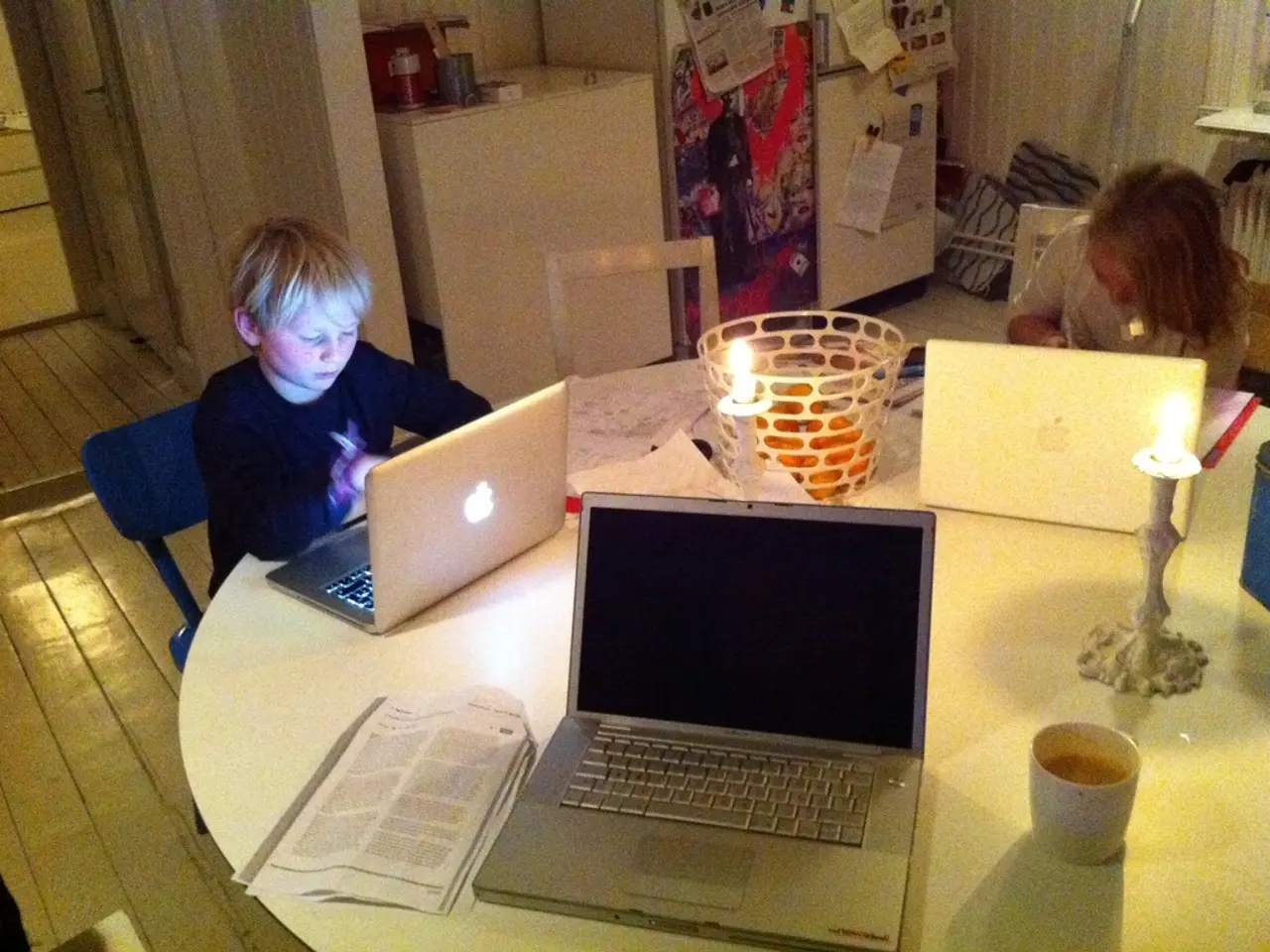A favorable home learning atmosphere during preschool years enhances academic success at secondary school levels
A recent study, published in School Effectiveness and School Improvement and conducted by Dr Simone Lehrl of the University of Bamberg, has shed light on the significant impact of early years home learning on children's development up to early adolescence. The study, which was published by Taylor & Francis Group, a leading publisher of scholarly journals, has found that a rich home learning environment during a child's early years can improve test scores later in life, particularly in reading and mathematical skills.
The study assessed various aspects of the home learning environment, including formal literacy and numeracy activities, book exposure, and the quality of verbal parent-child interactions regarding language and mathematics. Formal literacy activities were found to boost not only language skills and reading comprehension but also improve numerical skills. Book exposure and the quality of verbal interactions regarding mathematical content during shared book reading when children were of preschool age were associated with better math outcomes at age 12.
The research involved 229 German children, who were studied from age three until secondary school. Annual tests were conducted on the children's literacy and numeracy skills during their preschool years (ages 3-5) and again when they were 12 or 13 years old. Researchers accounted for background variables such as gender, maternal education, and socio-economic status in the results of the study.
The study found that children gained from home stimulation in their preschool years in literacy, language, and arithmetic skills, which led to higher outcomes in reading and mathematical skills in secondary school. Encouraging caregivers to engage in direct literacy activities, shared book reading, and advanced verbal interactions during reading, and to include language and mathematical content during these activities, can promote children's reading and mathematical abilities in secondary school.
The effects of early home learning were found to persist regardless of the home learning environment in secondary school. This suggests that the early years are crucial in shaping a child's development in literacy, language, and arithmetic skills. Dr Lehrl stated that early language skills not only improve a child's reading but also boost mathematical ability.
For a copy of the study or to arrange an interview with the lead author, contact Simon Wesson at [email protected] or +44 (0)20 7017 4311. The study's findings will be freely available once the embargo has lifted via the link: https://www.tandfonline.com/doi/full/10.1080/09243453.2019.1618346. Taylor & Francis Group has offices in Oxford, New York, Philadelphia, Boca Raton, Boston, Melbourne, Singapore, Beijing, Tokyo, Stockholm, New Delhi, and Cape Town.
Read also:
- Understanding Hemorrhagic Gastroenteritis: Key Facts
- Stopping Osteoporosis Treatment: Timeline Considerations
- Expanded Community Health Involvement by CK Birla Hospitals, Jaipur, Maintained Through Consistent Outreach Programs Across Rajasthan
- Abdominal Fat Accumulation: Causes and Strategies for Reduction







